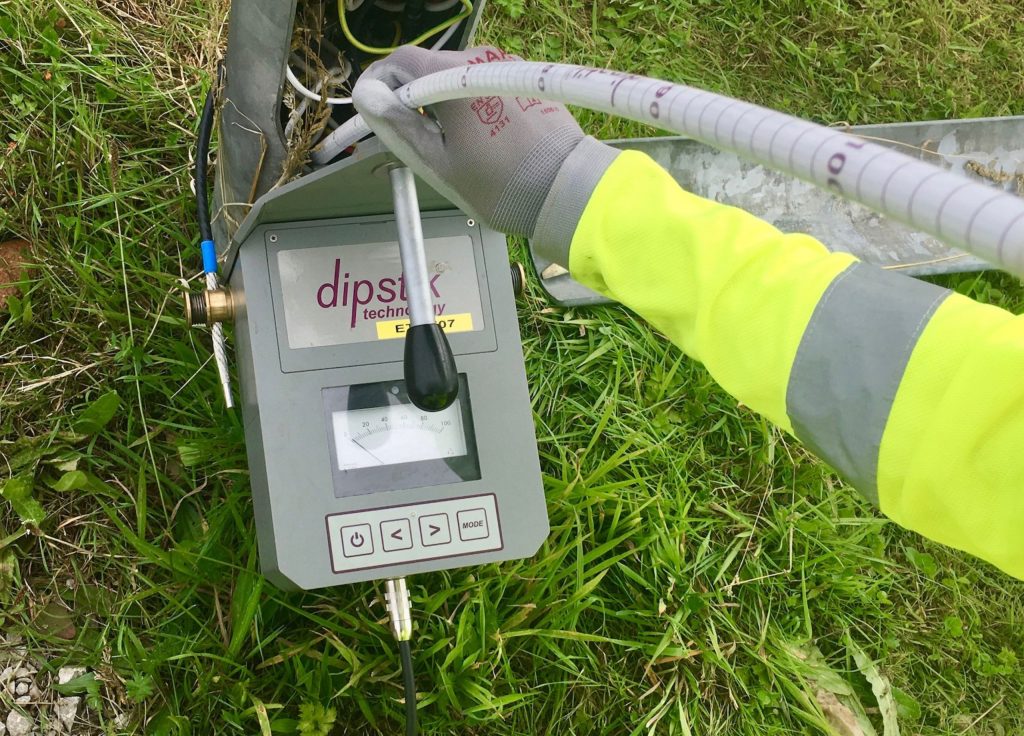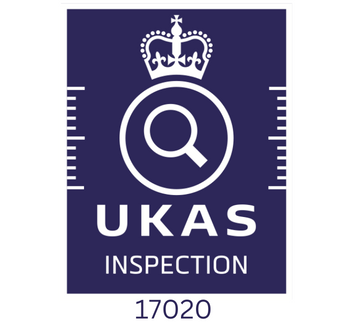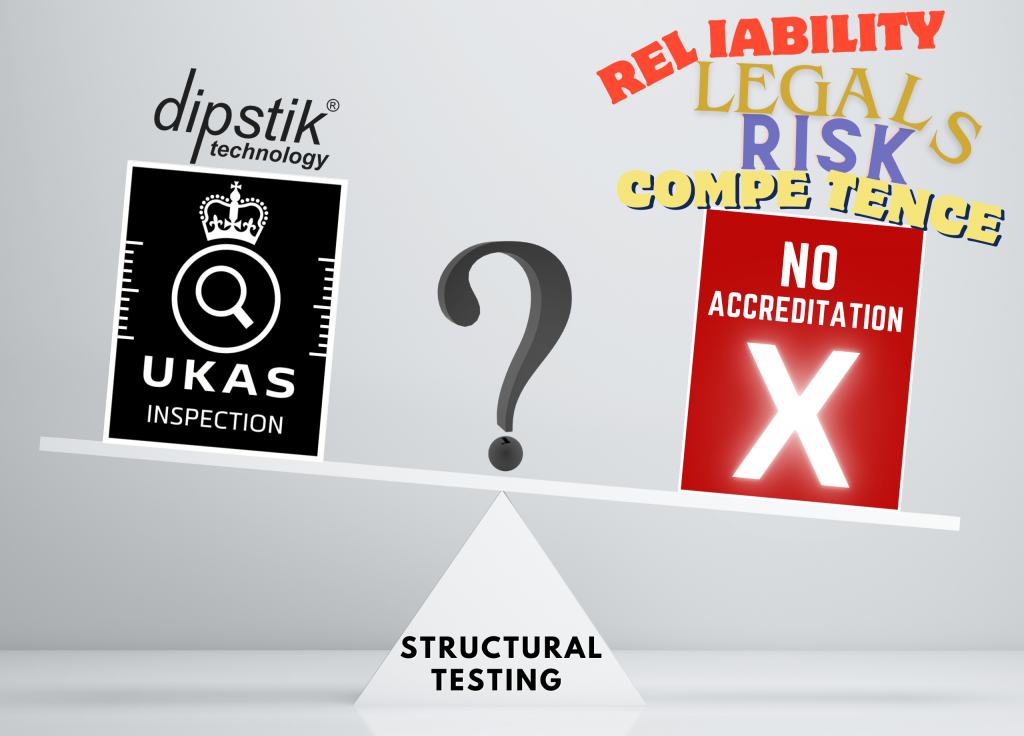
The Advantages of Choosing a UKAS ISO 17020 Accredited Company for Structural Inspection of Street Lighting
When you require structural inspection for street lighting, particularly when utilising advanced methods such as eddy current techniques in our Dipstik service dipstik.com, accreditation is vital. Electrical Testing Ltd is proud to hold accreditation from the United Kingdom Accreditation Service (UKAS) under ISO/IEC 17020 – but what does this mean for you as our client?
This blog aims to explain the unique benefits you gain when choosing a UKAS-accredited company and how ISO 17020 differs from other well-known ISO standards like ISO 9001, 14001, and 45001.
What is ISO 17020?

ISO/IEC 17020 is an internationally recognised standard tailored specifically for organisations involved in inspection, surveys, and risk assessments across a multitude of sectors. The standard is formulated to ensure that accredited organisations demonstrate a high level of technical competence, operational integrity, and impartiality.
Under the ISO/IEC 17020 framework, we undergo rigorous evaluations to validate our capabilities in performing inspections that meet or exceed national and international benchmarks. Accreditation doesn’t merely affirm our proficiency in employing inspection methods; it also scrutinises our organisational structure, internal procedures, and quality control measures. This ensures we operate at a consistently high standard, providing our clients with results that are both accurate and reliable.
The comprehensive nature of this accreditation means you can be confident that inspections are executed in a meticulous and impartial manner, utilising validated methods that comply with both national and international standards. Our ISO/IEC 17020 accreditation signifies not just our technical skill, but also our commitment to delivering a service that is at once robust, trustworthy, and compliant with statutory regulations.
How Does ISO/IEC 17020 Differ from ISO 9001, 14001, & 45001?

ISO 9001, ISO 14001, and ISO 45001 are primarily management system standards, often integrated into an Integrated Management System (IMS) to cover aspects like quality, environment, and occupational health and safety, respectively. These standards deal largely with the organisational processes and governance structures that a company should have in place. For instance, ISO 9001 aims to enhance customer satisfaction through continual improvement of quality management processes. ISO 14001 focusses on minimising the environmental impact of an organisation’s activities. ISO 45001, on the other hand, targets the improvement of occupational health and safety performance.
ISO/IEC 17020 diverges significantly from these standards because it is a technical standard aimed at ensuring the technical competency and impartiality of inspection bodies. While management system standards like ISO 9001 aim to create a framework for managing business processes effectively, ISO/IEC 17020 zeroes in on the inspection process itself. It stipulates requirements for the competence of the personnel conducting inspections, the methods and equipment used, as well as the quality and integrity of the inspection data. Unlike IMS standards that can be adapted to various industries, ISO/IEC 17020 is focused on the specific functions, roles, and technical requirements of inspection bodies.
In essence, ISO/IEC 17020 isn’t something you would typically integrate into an IMS; it stands apart as a specialised accreditation that ensures inspection services meet stringent technical and ethical benchmarks. It’s less about how an organisation is managed and more about the technical competence and operational integrity inherent in the inspection process itself. This makes it a highly specialised accreditation that offers unique assurances beyond what is covered by general management standards.
Why Choosing a UKAS ISO 17020 Accredited Company is Crucial

The risks associated with choosing a non-accredited organisation are multi-faceted. Such companies may operate without verified technical competence, raising concerns about the reliability of their inspections and the data they produce. An absence of clear impartiality could further compromise the validity of an inspection, jeopardising your project or even leading to legal complications. Financially, should failures or shortcomings be identified later on, you could be faced with costly remedial work and potential legal expenses.
Moreover, when it comes to legal safeguards, the value of choosing a UKAS-accredited organisation cannot be overstated. Reports generated by accredited bodies are often accorded greater evidential weight in legal contexts. Accreditation assures compliance with both national and international standards, thus minimising your risk of non-compliance with statutory obligations. Additionally, securing indemnity insurance is generally more straightforward when you’re working with an accredited organisation, giving you an extra layer of protection.
Selecting a UKAS ISO/IEC 17020 accredited company isn’t simply a tick-box exercise. It provides multiple layers of assurance, enabling you to benefit from inspections that are not only reliable but also legally robust. This level of assurance is invaluable in a world where the costs—both legal and financial—of settling for less can be substantial.

